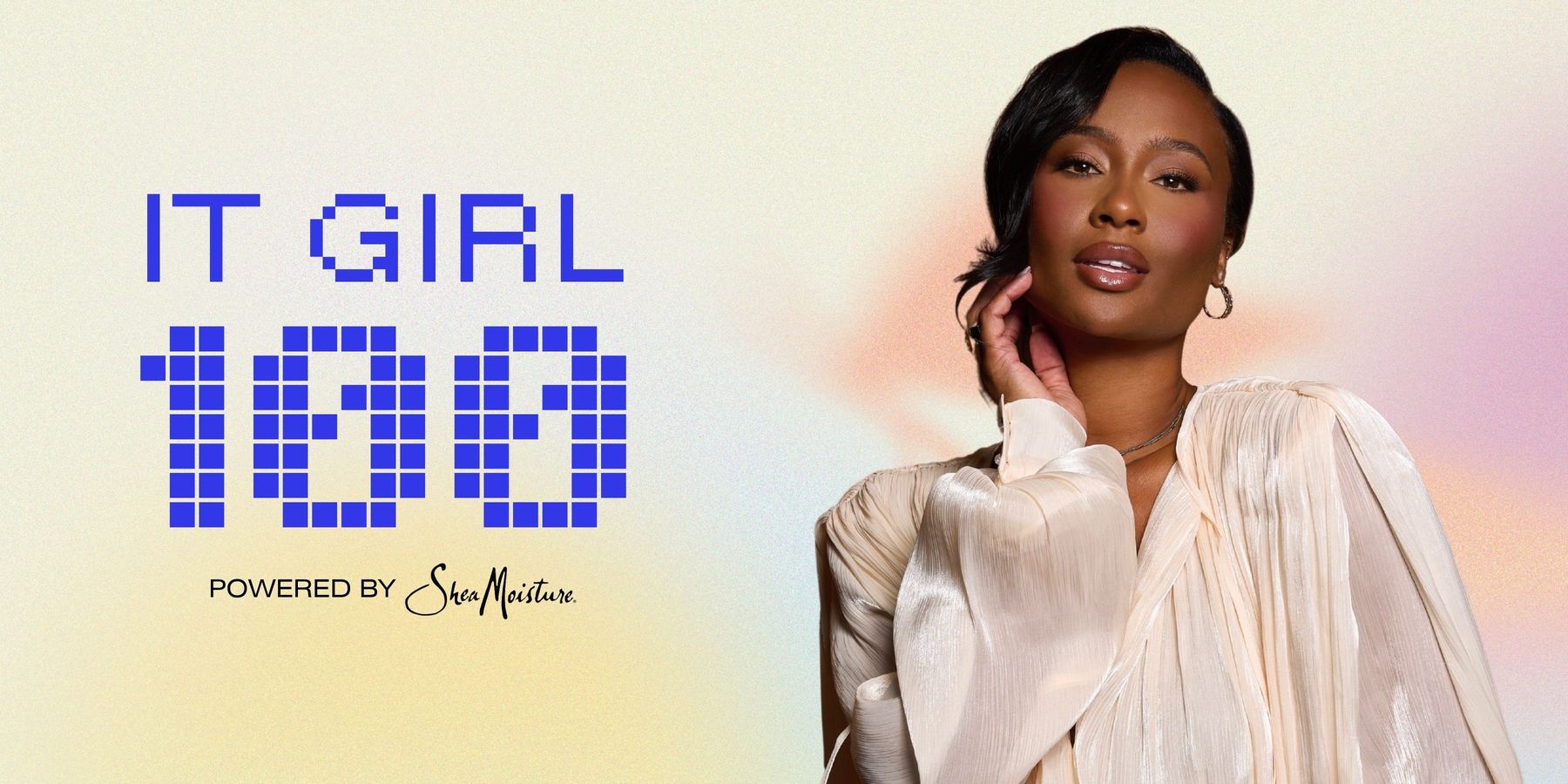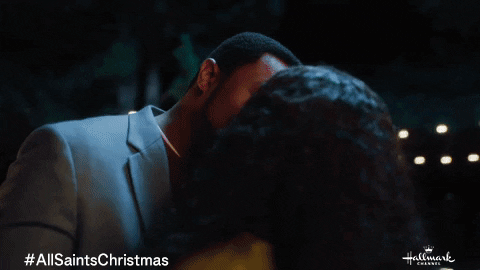
Vaughn Hebron may be one of the leads of BET's hit series, The Oval, but the Baltimore-bred actor is the perfect leading man off- and on-screen. Though he plays Bartholomew "Barry" Hallsen, a young father to daughter Callie and son of the esteemed White House butler, Hebron's chiseled physique and abs for days are a tempting distraction from any lines he might be reading.
The Lafayette College alumnus attended his alma mater on a partial scholarship for Division I football where he became an active member of Omega Psi Phi Fraternity. After graduation, he pursued a short career in pharmaceuticals, and in January 2017, he decided to give acting a shot by moving to Los Angeles. Who would've thought that two short years and a push of encouragement from his stepfather later, he would be booked as a series regular on one of the leading shows on BET?
xoNecole caught up with the actor about physical health as a factor in attractiveness, why he didn't date while he was in college, and his thoughts on the relationship between mother and son being a reflection of how a man will treat a woman. Take a look at our conversation below!
xoNecole: How do you believe Barry has evolved since we met him in the first season?
Vaughn Hebron: The Oval for Barry started like a regular day just going to help his father out at the White House—something that he's always done. He thought it was going to be a regular night and then he gets accused of rape, which is something he's never obviously encountered before, especially in a place that was so familiar to him. He managed to get off even though his life was almost ruined. Literally, within one day, his whole life just flipped and changed. As a young man, he was trying to better himself, get his own place, and out of his parents' spot just so he could grow into his manhood and be independent.
Pretty much until the end of the season, he's dealing with blow after blow of his reality being shattered, his baby being taken, and the people that he thought would be on his side really not showing the support he thought. That's what makes him lash out a lot and makes him do some reckless things. You start to see where a good guy—when faced with a lot of extreme adversity and hardship in such a short period—just cracks under all of that pressure.
Related to romance, in what ways do you feel you connect with Barry's story?
Well, I don't have baby-mama drama, thankfully. If I ever did, I'm hoping that she's not part of a crazy cult that's kidnapping kids and stuff. I surely hope not, but it's Hollywood so you never know (laughs). I think Sharon reminds him so much of his mother, and I understand trying to find your mother in your spouse and trying to find those good qualities that really love about your mother. At the same time, as Sharon talks about throughout the season, she never really had a close relationship with Barry's daughter. Barry and the way he lashed out at his mother is the same way he lashes out at Sharon a few times when he just can't trust any woman (laughs).
I have way better luck with women than Barry does. I do believe that he genuinely wanted the world with Sharon and wanted to be a good father. It's sad that extreme circumstances can really affect everything and everybody around you.
Speaking of mothers, I was always taught that you can tell a lot about how a man’s going to treat you based on how he treats his mother. How true do you find that to be?
I don't know if that's always true because mothers—as much as we love them and they're a God-sent blessing—they're not always perfect. Sometimes a mother can do something that really affects the relationship that she has with her son. I think the way that a man respects his mother and holds her in regard is what you can expect, yes. [However,] just because they don't have the best relationship doesn't mean that's gonna reflect in a relationship that a woman will have with a man.
My mother and I—of course, she's still my mother—but at this point, we kind of have more like a big sister-little brother relationship. We joke, laugh, and talk to each other like we really grew up together (laughs). It's so funny because that's my friend, and of course, I would never disrespect her or anything like that, but I will still have a real conversation and banter with her in a way some people might not ever go back and forth with their mother. That's just the relationship that we have with each other.
I think you have to gauge that and I don't always think it's a reflection. You know if he doesn't respect or at least know how to talk to his mother, then he might not know how to talk to you as a woman.
You’re the oldest of nine siblings. What has being this taught you about love and patience that can be translated into relationships?
What being the oldest has probably taught me the most is that everybody matures, grows, and comes into their maturation and who they are in their own time. What works for somebody or what standard that somebody has for themselves isn't going to be the same standard for everybody else. For me, by the time I graduated, I went straight into the workforce and I was pretty independent. I was also independent in college. For my brothers, it either took them a longer time to graduate or after they graduated, they moved back in with our parents. Everybody had a different standard of where their life was going to lead them and what they were going to do with themselves.
When it comes to relationships, it taught me that the standard you might've had for your ex, somebody you used to talk to or any other situation, you can't always bring that to this new person. You have to gauge where they are and see if where they are works for you or not, but you can't really compare them or try to hold somebody else to a standard where somebody else was at, especially if it didn't work for you. That kills me sometimes. A lot of times people will be like, 'I'm used to this. I'm used to a man doing this. I'm used to a man saying this," and I'll be like, "Well, are you still with that person?' (laughs). If it didn't work for you and if it didn't work out, why are you comparing this to something that didn't work?
"When it comes to relationships, it taught me that the standard you might've had for your ex, somebody you used to talk to or any other situation, you can't always bring that to this new person. You have to gauge where they are and see if where they are works for you or not, but you can't really compare them or try to hold somebody else to a standard where somebody else was at, especially if it didn't work for you."
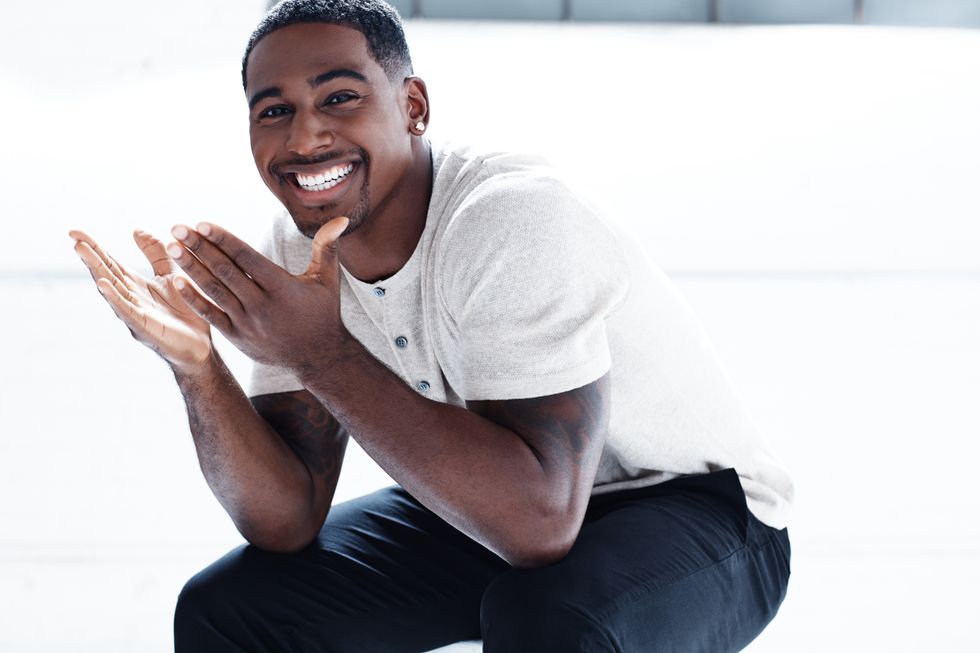
Rowan Daly
That's definitely true. If it didn’t work back then and you keep trying to make that work, chances are that it may not work. Let’s just hang that up.
Yeah, everybody moves in a different way. Everybody has their own beat that they dance to. All you have to do is see if it works for you or if it doesn't. Trying to compare and hold somebody else to a standard that they don't even think about, I find it to be less effective most of the time.
You mentioned that straight out of college, you started working. How would you compare dating in college to dating while you’re working out in the real world?
Honestly, I didn't really date like that in college. I was on the football team, then I pledged and became a Que so dating wasn't really in the cards for me in college because I had other priorities. I would say if I did get close to somebody in college, we did little things like go to the movies, go out to eat here or there or we would hang out on campus. Everything was carefree and I don't think we were really looking towards the future with things back in college.
I've always dated older women, too, to be honest with you so when I graduated and started working, the women I dated after that just seemed to know where they were going or they knew what they were trying to work toward. It was one of those things where if I wasn't helping them, or if I wasn't on the same page, it probably wasn't gonna work out. They weren't really just trying to chill out and be casual with things. They were like, 'Look, if we ain't building toward a relationship or something more than just us hanging out, it's not for me.'
Dating after college became something like seriously dating, building, and progressing and not just a relationship where it's like, "This is my girlfriend and we do girlfriend-boyfriend stuff." We make each other better and we're working toward something long-term. The standards and the expectations went up.
What are the top lessons that the entertainment industry has taught you about dating?
The No. 1 lesson that I've learned out here is people have different priorities and you have to know what those priorities are before you take them seriously. What I mean by that is coming from Baltimore—the East Coast—everybody seems to be on the same wave. You graduate college, you go get a job, you become successful in that job, you find a woman, you make her your wife, and then y'all live happily ever after with your big house, some equity, some investments, and some kids. That's what everybody was on where I was from.
Over here, people have different priorities because people don't move to L.A. to get married. They move to L.A. to become movie stars, actresses, the next biggest model, or the next big R&B singer. Everyone has different priorities when it comes to being out here, so you have to know that before getting involved with somebody. Even if they say they're open to a relationship, if their actions show that you are not a priority and their job, clout, or image is a bigger priority, that's something that you have to make sure you understand so you don't end up getting hurt. You can't just assume that because somebody says they want a relationship—or they're acting like they want a relationship —means that they really want a relationship.
You’re also recognized for being really smart. You graduated with degrees in Economics and Business and a minor in Africana Studies. How important is it to you that a woman has brains?
It's very important to me because I love intelligence. I love a woman who's witty and smart, and because I'm a person that loves intelligence, I like going back and forth with people and having good conversations, debates and exchanges of thought. That's intimate to me. It can be very intimate, actually. That's one of the things that I cherish and appreciate when I talk to someone. If I can't have a real conversation with you and talk to you about some deep stuff, then it's just not going anywhere.
To add to that, one of the biggest things that I also appreciate is when somebody can teach me something and can add onto the knowledge I have and get me to think about things in a different way. If she's not intelligent, always learning or growing herself, or developing personally, she wouldn't be able to do that for me if she's not working on herself individually. I think that goes for anybody. If you're not bettering yourself and if you're not constantly feeding your mind and soul—pouring into yourself—how can you pour into somebody else? Intelligence and wit is something I value a lot when it comes to women.
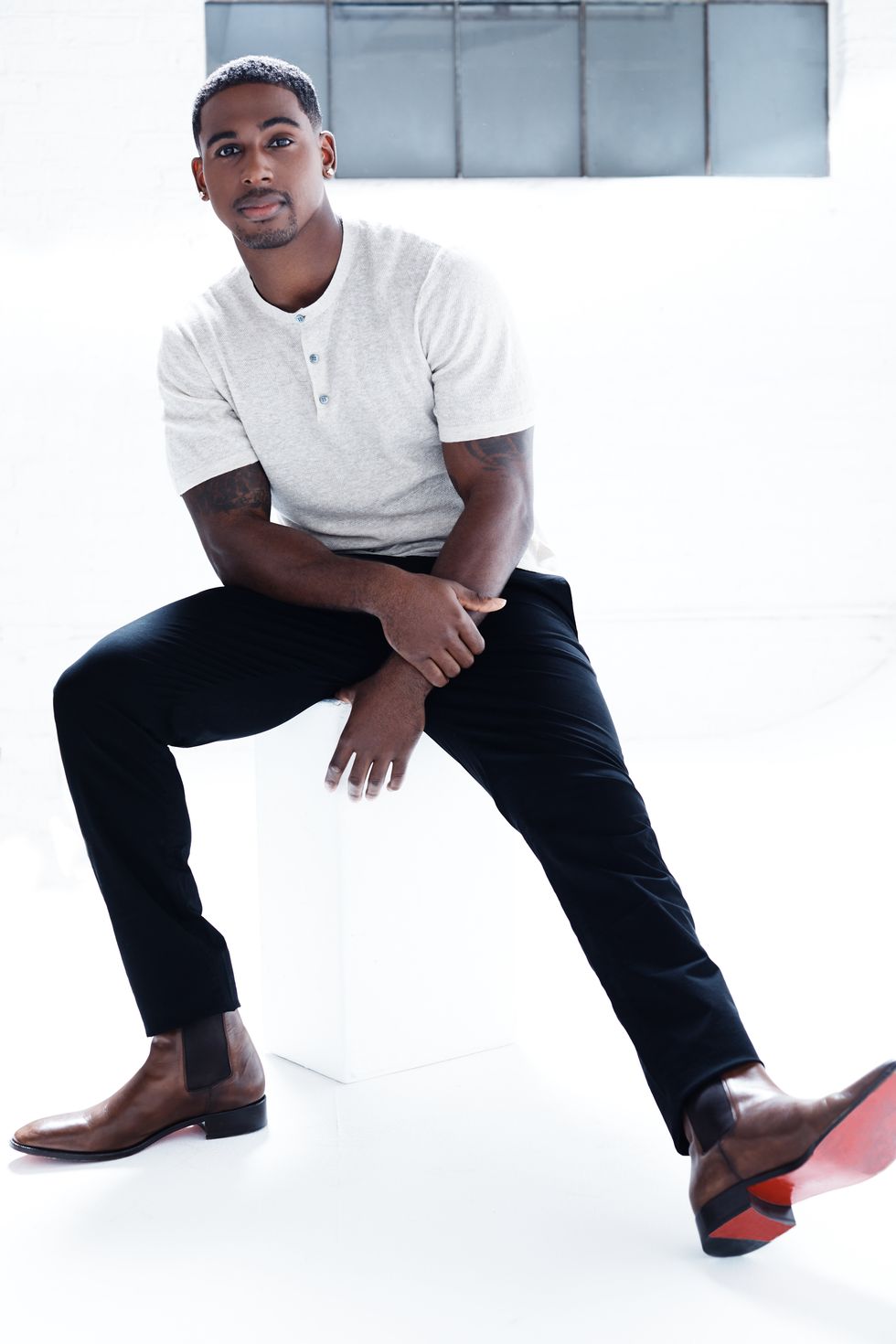
Rowan Daly
"If she's not intelligent, always learning or growing herself, or developing personally, she wouldn't be able to do that for me if she's not working on herself individually. I think that goes for anybody. If you're not bettering yourself and if you're not constantly feeding your mind and soul—pouring into yourself—how can you pour into somebody else? Intelligence and wit is something I value a lot when it comes to women."
You’re not just brains. You’re also brawn! On your IG, we see the arms, abs and in 'GQ South Africa', you talked about fitness and working out.
A little bit, a little bit (laughs).
No, you do it. Don’t flex! How does working out and physical fitness play a role when you’re looking for a woman?
It plays a big role and it's probably gonna be the first thing I see. The physical appearance is probably the first thing I'm attracted to—it is what it is. I'm not saying she has to look like Beyonce or J.Lo, but I definitely need a woman who takes care of herself physically. If I'm putting so much time and energy into my body—and I'm not saying you have to do what I do— and you're not making sure you're not on top of your own body, physical fitness, and mental health, then there's gonna be an issue.
When it comes to diet, it plays a role in a lot of things—your mental health, how tired you are, your sexual health. Fitness is a universal thing, so I have to make sure you're on it because I'm going to be on it. Luckily I'm in an industry where they take their physical health and appearance pretty seriously, and it's L.A.. More often than not, I meet women who are already working out and taking care of themselves, so that's been a good thing.
You put in your Instagram bio that you are an “intellectual bad boy”. If you could put your perfect woman in three words, what would it be?
Wow, I really said that? (Laughs.) Intelligent, committed, and priceless. Oh yeah, that's a good one.
For more of Vaughn Hebron, follow him on Instagram or catch him on Tyler Perry's The Oval on BET.
*Some answers have been edited and condensed for clarity.
Featured photo courtesy of Rowan Daly
Exclusive: Viral It Girl Kayla Nicole Is Reclaiming The Mic—And The Narrative
It’s nice to have a podcast when you’re constantly trending online. One week after setting timelines ablaze on Halloween, Kayla Nicole released an episode of her Dear Media pop culture podcast, The Pre-Game, where she took listeners behind the scenes of her viral costume.
The 34-year-old had been torn between dressing up as Beyoncé or Toni Braxton, she says in the episode. She couldn’t decide which version of Bey she’d be, though. Two days before the holiday, she locked in her choice, filming a short recreation of Braxton’s “He Wasn’t Man Enough for Me” music video that has since garnered nearly 6.5M views on TikTok.
Kayla Nicole says she wore a dress that was once worn by Braxton herself for the Halloween costume. “It’s not a secret Toni is more on the petite side. I’m obsessed with all 5’2” of her,” she tells xoNecole via email. “But I’m 5’10'' and not missing any meals, honey, so to my surprise, when I got the dress and it actually fit, I knew it was destiny.”
The episode was the perfect way for the multihyphenate to take control of her own narrative. By addressing the viral moment on her own platform, she was able to stir the conversation and keep the focus on her adoration for Braxton, an artist she says she grew up listening to and who still makes her most-played playlist every year. Elsewhere, she likely would’ve received questions about whether or not the costume was a subliminal aimed at her ex-boyfriend and his pop star fiancée. “I think that people will try to project their own narratives, right?” she said, hinting at this in the episode. “But, for me personally – I think it’s very important to say this in this moment – I’m not in the business of tearing other women down. I’m in the business of celebrating them.”
Kayla Nicole is among xoNecole’s It Girl 100 Class of 2025, powered by SheaMoisture, recognized in the Viral Voices category for her work in media and the trends she sets on our timelines, all while prioritizing her own mental and physical health. As she puts it: “Yes, I’m curating conversations on my podcast The Pre-Game, and cultivating community with my wellness brand Tribe Therepē.”
Despite being the frequent topic of conversation online, Kayla Nicole says she’s learning to take advantage of her growing social media platform without becoming consumed by it. “I refuse to let the internet consume me. It’s supposed to be a resource and tool for connection, so if it becomes anything beyond that I will log out,” she says.
On The Pre-Game, which launched earlier this year, she has positioned herself as listeners “homegirl.” “There’s definitely a delicate dance between being genuine and oversharing, and I’ve had to learn that the hard way. Now I share from a place of reflection, not reaction,” she says. “If it can help someone feel seen or less alone, I’ll talk about it within reason. But I’ve certainly learned to protect parts of my life that I cherish most. I share what serves connection but doesn’t cost me peace.
"I refuse to let the internet consume me. It’s supposed to be a resource and tool for connection, so if it becomes anything beyond that I will log out."

Credit: Malcolm Roberson
Throughout each episode, she sips a cocktail and addresses trending topics (even when they involve herself). It’s a platform the Pepperdine University alumnus has been preparing to have since she graduated with a degree in broadcast journalism, with a concentration in political science.
“I just knew I was going to end up on a local news network at the head anchor table, breaking high speed chases, and tossing it to the weather girl,” she says. Instead, she ended up working as an assistant at TMZ before covering sports as a freelance reporter. (She’s said she didn’t work for ESPN, despite previous reports saying otherwise.) The Pre-Game combines her love for pop culture and sports in a way that once felt inaccessible to her in traditional media.
She’s not just a podcaster, though. When she’s not behind the mic, taking acting classes or making her New York Fashion Week debut, Kayla Nicole is also busy elevating her wellness brand Tribe Therepē, where she shares her workouts and the workout equipment that helps her look chic while staying fit. She says the brand will add apparel to its line up in early 2026.
“Tribe Therepē has evolved into exactly what I have always envisioned. A community of women who care about being fit not just for the aesthetic, but for their mental and emotional well-being too. It’s grounded. It’s feminine. It’s strong,” she says. “And honestly, it's a reflection of where I am in my life right now. I feel so damn good - mentally, emotionally, and physically. And I am grateful to be in a space where I can pour that love and light back into the community that continues to pour into me.”
Tap into the full It Girl 100 Class of 2025 and meet all the women changing game this year and beyond. See the full list here.
Featured image by Malcolm Roberson
If there is one thing that I am going to do, it’s buy myself some scented soy candles. And, as I was looking at a display of them in a TJ Maxx store a couple of weekends ago, I found myself wondering just who decided which scents were considered to be “holiday” ones. The origin stories are actually pretty layered, so, for now, I’ll just share a few of ‘em.
I’m sure it’s pretty obvious that pine comes from the smell of fresh Christmas trees; however, scents like cloves, oranges, and cinnamon are attributed to two things: being natural ways to get well during the cold and flu season, and also being flavors that are used in many traditional holiday meals.
Meanwhile, frankincense and myrrh originate from the Middle East and Africa (you know, like the Bible does — some folks need to be reminded of that—eh hem — Trumpers) and ginger? It too helps with indigestion (which can definitely creep up at Thanksgiving and Christmas dinner tables); plus, it’s a key ingredient for ginger snaps and gingerbread houses. So, as you can see, holiday-themed scents have a rhyme and reason to them.
Tying this all in together — several years ago, I penned an article for the platform entitled, “Are You Ready To Have Some Very Merry ‘Christmas Sex’?” Well, in the spirit of revisiting some of that content, with a bit of a twist, I decided to broach some traditional holiday scents from the perspective of which ones will do your libido a ton of good from now through New Year’s Eve (check out “Make This Your Best NYE. For Sex. EVER.”).
Are you ready to check some of them out, so that, whether it’s via a candle, a diffuser, some essential oil, or some DIY body cream (check out “How To Incorporate All Five Senses To Have The Best Sex Ever”), you can bring some extra festive ambiance into your own boudoir? Excellent.
1. Vanilla
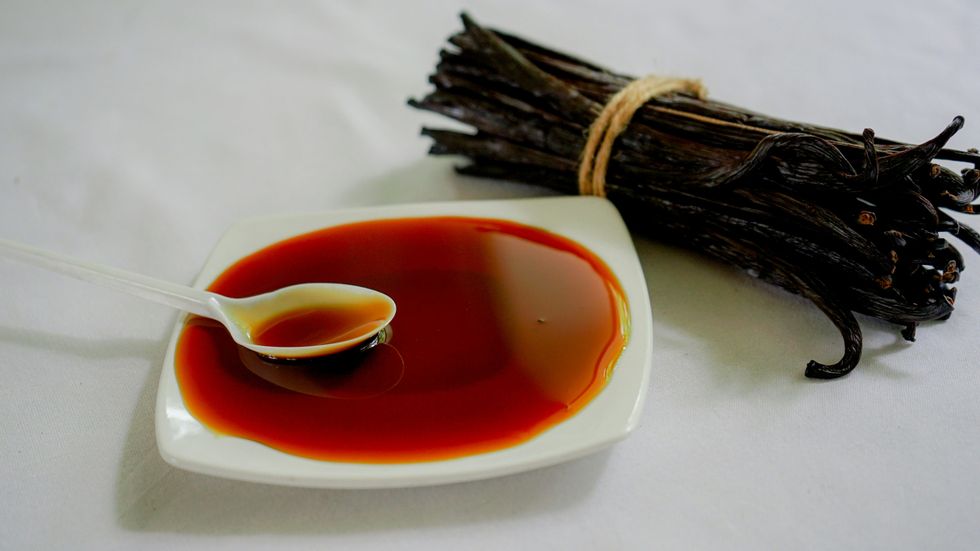
Unsplash
When it comes to holiday desserts, you’re going to be hard-pressed to find recipes that don’t include vanilla — and that alone explains why it is considered to be a traditional holiday scent. As far as your libido goes, vanilla is absolutely considered to be an aphrodisiac — partly because its sweet scent is considered to be very sensual. Some studies even reveal that vanillin (the active ingredient in vanilla) is able to increase sexual arousal and improve erectile dysfunction in men. So, if you adore the smell, here is more incentive to use it.
2. Frankincense

Unsplash
Although, typically, when people think about frankincense (and myrrh), it’s in the context of the gifts that the wise men brought Christ after he was born; it’s a part of the biblical Christmas story. However, frankincense goes much deeper than that. Sexually, since it has an earthy and spicy scent, some people like to use it to meditate (check out “What Exactly Is 'Orgasmic Meditation'?”). Also, since it has the ability to put you in a better mood, soothe and soften your skin and maintain your oral health — with the help of frankincense, every touch and kiss can be that much…sexier.
3. Cinnamon

Unsplash
I already gave cinnamon a shout-out in the intro. Personally, I’ve been a fan of it, in the sex department, for a long time now (check out “12 ‘Sex Condiments’ That Can Make Coitus Even More...Delicious”). When it’s in oil form, it can be very sweet to the taste while sending a warm sensation throughout the body — which is why the giver and receiver of oral sex can benefit from its usage. Beyond that, cinnamon helps to increase blood flow to your genital region, elevate sexual desire and, some studies say that it can even help improve fertility. Beautiful.
4. Peppermint
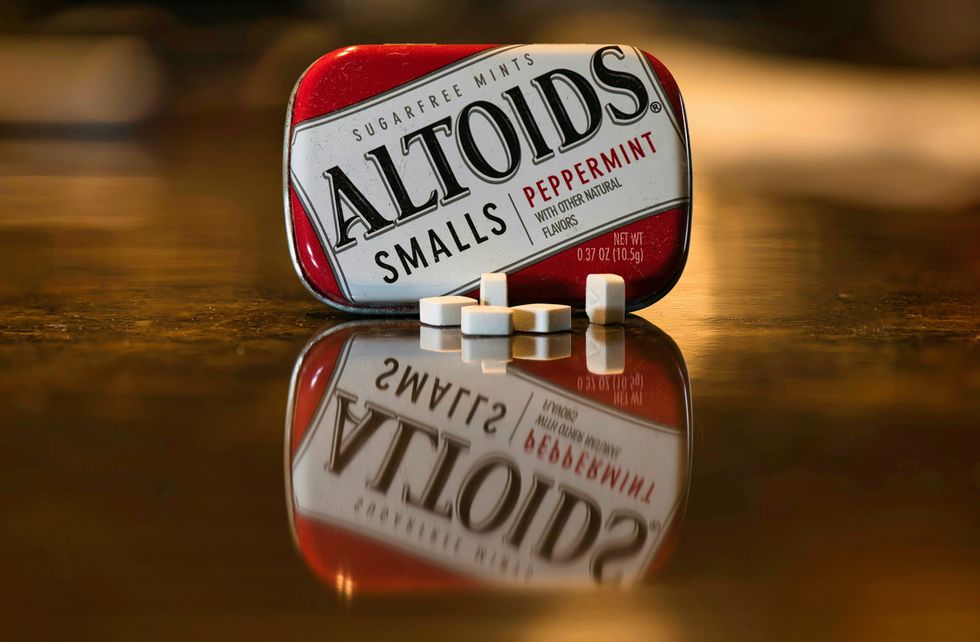
Unsplash
If there’s a signature candy for the holiday season, it’s probably a candy cane — which automatically puts peppermint in the running for being an official holiday scent. Pretty much, in any form, it’s got your sex life’s back because it’s hailed as being a sexual stimulant; in part, because its smell is so invigorating. Plus, it helps to (eh hem) ease headaches, it gives you more energy and it can definitely help to freshen your breath. Also, that minty sensation? The same thing that I said about cinnamon can apply to peppermint too (if you catch my drift).
5. Ginger

Unsplash
Whether it’s in a meal or in your bedroom, ginger is going to produce results that are hella spicy. On the sex tip, science has praised ginger for being able to increase sexual arousal, improve blood circulation (which intensifies orgasms) and strengthen fertility for many years. Scent-wise, I find it to be one that both men and women enjoy because it is both woodsy and sweet. So, if you’ve got some massage oil in mind, adding some ginger is a way to please you both.
6. Pomegranate
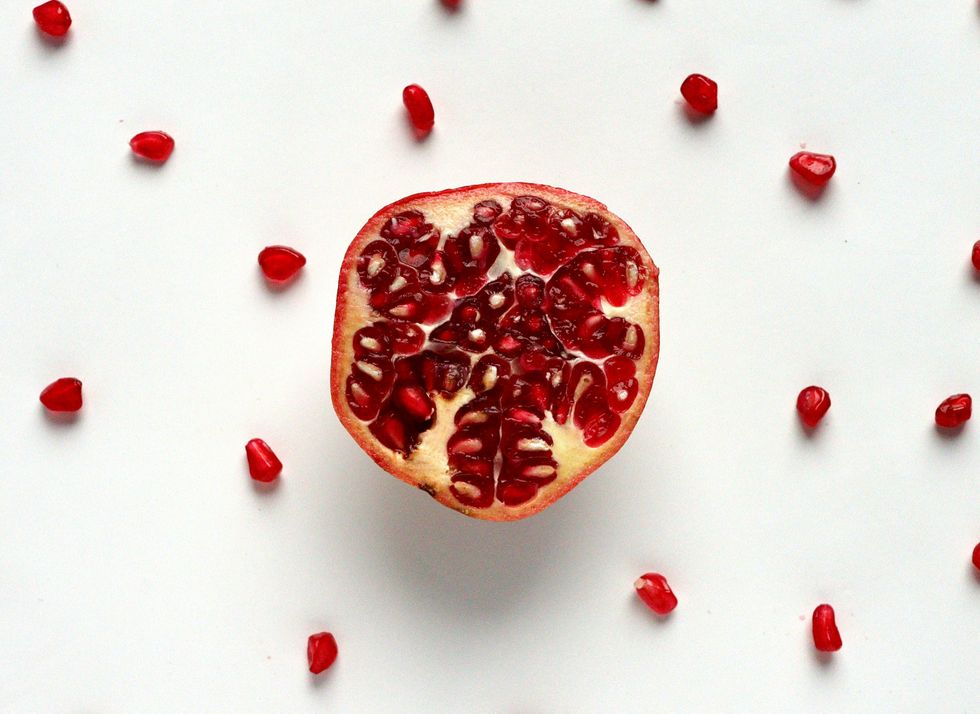
Unsplash
September through December is the time of year when pomegranates are considered to be in season. And, as someone who is a Rosh Hashanah observer, I have a personal adoration for them because I am aware of the various things that they symbolize in Hebrew culture including the fact that they are a fruit that represents love and fertility. So yeah, they would absolutely be an aphrodisiac — one that is perfect for this time of the year. While consuming it helps to boost testosterone levels in both men and women, the floral bittersweet smell that it produces can help to reduce stress while promoting relaxation (like most floral scents do) — and the more relaxed you are, the easier it is to climax.
7. Nutmeg
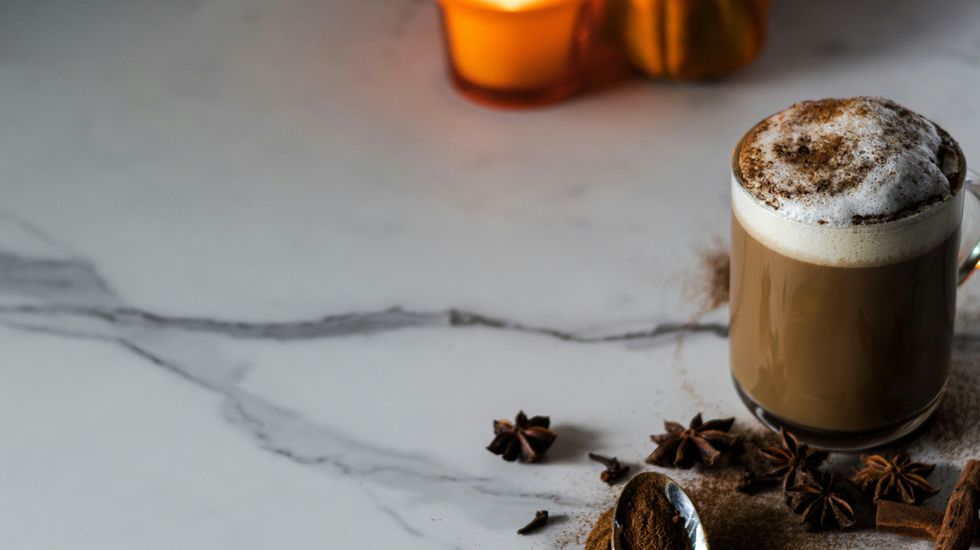
Unsplash
Another signature seasoning during the holiday season is nutmeg. It’s perfect in Thanksgiving sweet potato (or pumpkin) pie and Christmas morning French toast. And yes, it can also make your sex life better. If you consume it, it can intensify your libido and, overall, its warm-meets-spicy-meets-sweet smell is so inviting that it is considered to be a pretty seductive scent.
8. Cloves
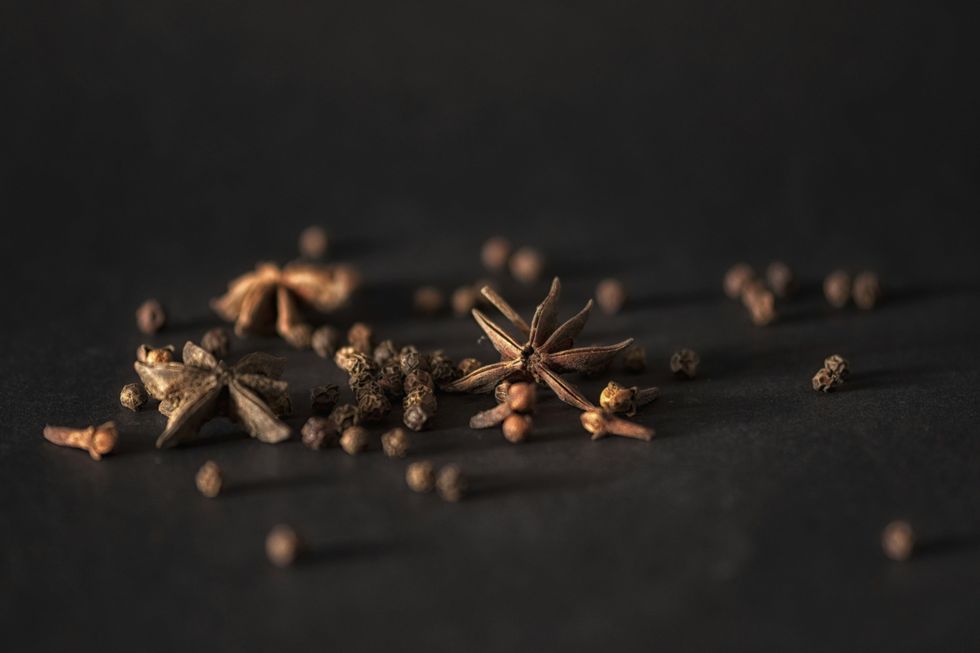
Unsplash
I ain’t got not one lie to tell you — if you’ve got a toothache, put some clove oil on that bad boy and send me a Christmas present for putting you on game. Aside from that, as I round all of this out, cloves are another holiday scent that can do wonders for your sex life. For men, it has the ability to significantly increase sexual arousal and improve stamina and endurance. For men and women alike, it also has a reputation for strengthening sexual desire. And for women solely? Well, if you want an all-natural way to increase natural lubrication down below — the scent and and feel (in DILUTED oil form) can make that happen. It can make the holidays especially special…if you know what I mean.
Ah yes — the atmosphere of the holidays and what it can do.
Take it all in! Scent ‘n whatever stimulating that comes with it! #wink
Let’s make things inbox official! Sign up for the xoNecole newsletter for love, wellness, career, and exclusive content delivered straight to your inbox.
Featured image by Giphy








